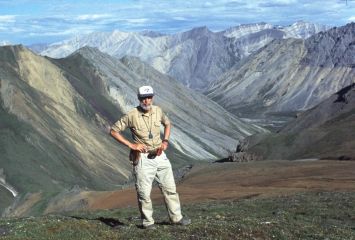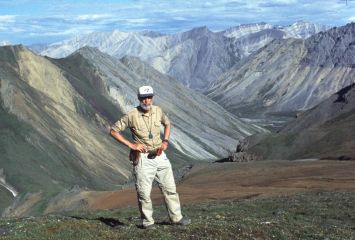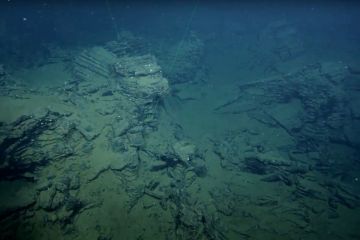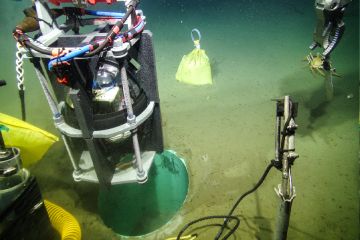Surviving a major earthquake: Lessons from Christchurch
- Daphne Donaldson and Peter Keller

This March the University of Canterbury in Christchurch, New Zealand, welcomed a small delegation from UVic interested in seeing first-hand how the university and the city are recovering a year after the most devastating in a series of earthquakes, and discussing lessons learned and insights gained.
Imagine an event of such magnitude that the university has to be closed for several weeks for reasons of safety, and that even when it reopens a significant number of our buildings are inoperable and likely to remain so for more than a year.
This raises interesting questions. How do you close a university down? How do you re-organize the academic term and the delivery of academic programming to allow students to get on with their studies when you have lost a significant amount of teaching space? How do you keep students engaged while the university is closed? How do you facilitate continuation of research and scholarship when a significant part of your research space required for timely data collection and access to sophisticated instrumentation is unsafe for occupancy?
All this is compounded by the fact that the town you are located in has sustained equivalent damage, that many of the homes the staff and students live in are damaged—many with no running water or toilets—and a large percentage condemned for destruction. And your usual chain of suppliers and services in the local community is disrupted or out of business.
This is what the University of Canterbury and the city of Christchurch in New Zealand faced on Sept. 4, 2010, when an earthquake of 7.1 magnitude struck early on a weekend morning, and again on Feb. 22, 2011, with a smaller, but much more destructive earthquake of 6.3 magnitude in the middle of the business day.
There are many parallels between Christchurch and Victoria, and between the University of Canterbury and the University of Victoria. Both cities are located in a seismically active area. The housing stock in both is of similar age and structure, with many homes built of brick and mortar. And the two universities are of similar size and age, and have campuses that are remarkably alike.
The “red zone,” approximately 16 city blocks that make up the core of downtown Christchurch, remains behind a chain-link fence with heavy machinery on a controlled schedule tearing down most buildings because they are structurally unsafe. We were privileged to join our hosts for a tour of this area on the first day of our visit, giving us a sobering insight into the power of nature and what Victoria might look like should a similar event strike us here.
The reality check continued with a tour of neighbourhoods later that day revealing abandoned houses in various stages of collapse including some hanging off cliffs, roads protected from further rockslides by walls of shipping containers filled with concrete, neighbourhoods with wonky potholed streets and mobile outhouses on residential sidewalks where municipal services have yet to be restored.
The next few days on the Canterbury campus told the story of how, after a few weeks of closure, academic programming re-opened with lectures offered in tents on parking lots, moving a few months later into clusters of pre-fabricated buildings erected on playing fields to accommodate teaching, research and office needs displaced by the approximately 20 per cent of the university’s space that could not be re-occupied and is now slated for demolition.
We learned a lot. The University of Canterbury had dedicated effort and resources to preparing for the likelihood of a major disaster, and this paid dividends. University officials had established an Emergency Operations Centre, had given time to thinking through in detail what might need to be done should real disasters strike, and had practiced responses to various simulated crises.
Our hosts shared that after February’s devastating earthquake, not all turned out as expected and practiced, and there were many unanticipated challenges and surprises. Nobody, for example, anticipated that the students would organize themselves into the Student Volunteer Army with over a thousand students turning up day after day to reach into the neighbourhoods to help residents with whatever was needed, including clearing driveways, patching roofs or arranging food. And imagine universities elsewhere in New Zealand and other parts of the world agreeing to allow Canterbury students to stay with them and to take courses there for a term without charging any fees.
We returned to Victoria with long lists of lessons learned and questions to ask ourselves. How can what we heard and saw strengthen UVic’s current emergency operating procedures and emergency planning structure? What should we do and prepare for now, so that in real crises we can move quickly beyond emergency response into recovery? What we learned already is informing a number of initiatives and steps put in place at UVic since our visit that hopefully will make both individuals and the university even better prepared and more resilient.
The hope is that Victoria and its university will never have to face the type of situation our friends encountered in Christchurch. But our geological setting and the odds tell us that we had better be prepared for the worst. And we do know that everyone at UVic needs to understand basic emergency procedures on campus and be well prepared at home.
Our week in New Zealand has been hugely informative and has taken us important steps further in knowing what questions to ask and what to put in place now. It has reminded us once again that nature can be so very powerful and unpredictable. It also has brought us closer to colleagues in another part of the world whose amazing hospitality and willingness to share insights and lessons learned will prove invaluable should it ever come to that.
___________________________
Daphne Donaldson is UVic’s Manager of Emergency Planning
Peter Keller is Professor of Geography, Dean of Social Sciences and one of UVic’s Directors of its Emergency Operating Centre.
The delegation
All members of the delegation to New Zealand were part of the University of Victoria Emergency Operations Centre or Executive Policy teams. The team included: David Turpin, President; Gayle Gorrill, VP Finance & Operations; Peter Keller, Dean of Social Sciences and Emergency Operations Centre Direct#8744; Tom Smith, Executive Director, Facilities Management; Bruce Kilpatrick, Director, UVic Communications; Daphne Donaldson, Manager, Emergency Planning.
Whom they met
The group met with University Canterbury officials, faculty, staff and students, including the vice-chancellor and senior executive. They also met the communications team, research and academic leaders, digital learning group, facilities management, student affairs, student association, human resources, health and safety and finance, the current president of the Student Association, and the student leaders of the Student Volunteer Army. External contacts included the Christchurch Earthquake Recovery Authority and a video-conference with the AVP communications at Virginia Tech.
How you can help
In order to build UVic’s capacity to respond and recover from emergencies on campus UVic needs to identify staff, faculty and students with emergency response and recovery skills that may be needed during a crisis. If you have volunteered with other agencies (e.g. search and rescue, Red Cross, emergency social services etc.), or have language or first aid skills or other experience that may be needed during a crisis (crowd control, amateur radio operation, St. Johns Ambulance etc.) please contact Daphne Donaldson at ddonald@uvic.ca.
Hear first-hand what the earthquake was like
On June 12 from 1:30-4 p.m. in Social Sciences and Math A102, Carolyn Taylor, a UVic student who was in the central business district of Christchurch when the damaging earthquake hit, will describe her challenging experiences that day and how the earthquake has impacted her life. Daphne Donaldson, Manager, Emergency Planning, just returned from Christchurch as part of the UVic team. She will talk about the city and the university campus one year later and what we can learn from the people of Christchurch.
Are you prepared for any emergency?
For resources on earthquake response and preparedness—just in case: http://bit.ly/JjOGar
Photos
In this story
Keywords: earthquake, New Zealand, safety





